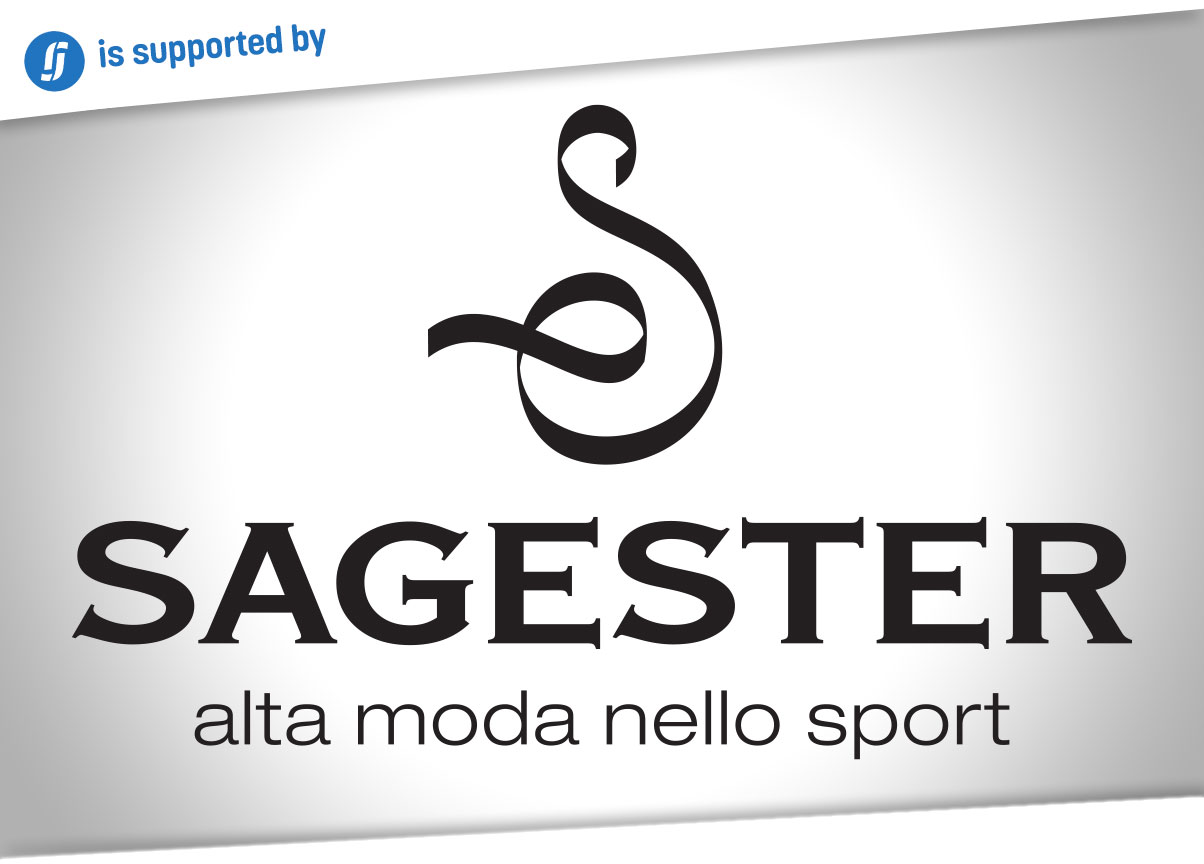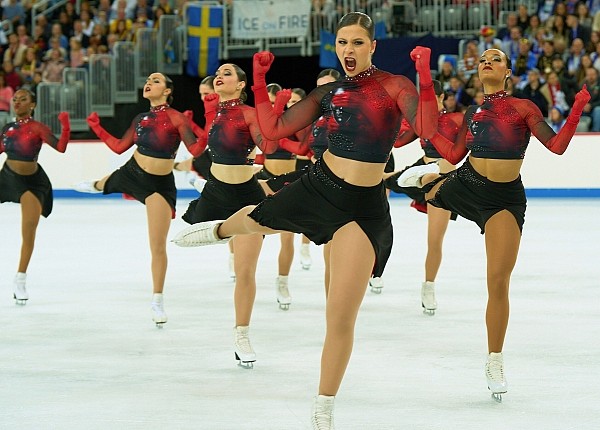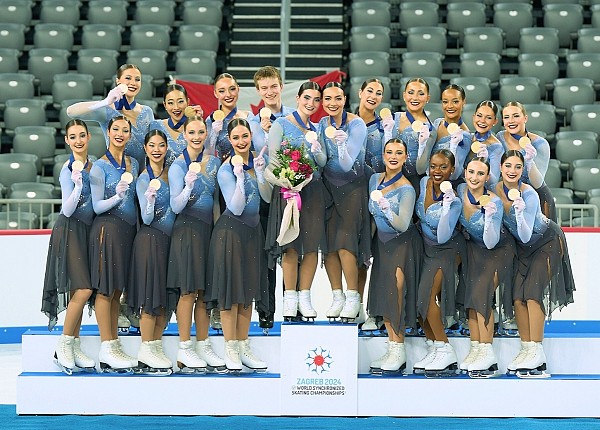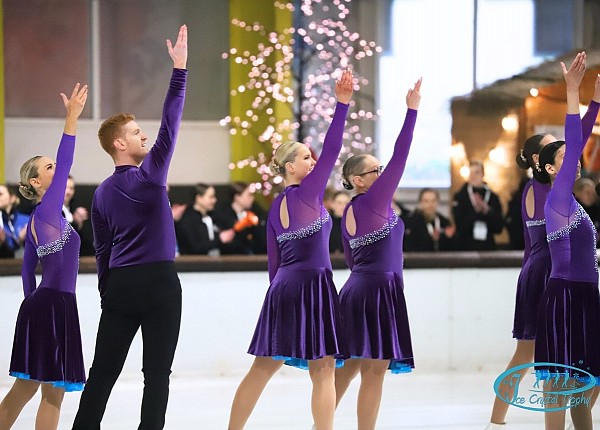Magazine
Being a Technical Specialist is "like solving math equations"!
Magazine
Being a Technical Specialist is "like solving math equations"!

Sitting in the forefront, technical specialists must be attentive to every detail. (Credits: Galaxy Ice - 2019)
They play a crucial role in competitions. Let's learn why Technical Specialists are so important in the world of synchronized skating.
Uliana Chirkova is a member of the Synchronized Skating ISU Technical Committee. Working as an ISU Technical Specialist, she helps us to understand what is the role of the Technical Specialist (TS) in the world of synchronized skating.
An end-of-career opportunityUliana Chirkova used to skate synchro until she was 21. Then she left the sport, graduated from university and got a job in an engineering company. But after two years without synchronized skating, she realized that she missed it very much and decided to become a judge.
"During only one season I attended a seminar for judges in my country, passed exams for a National Technical Specialist, served as a TS in four national competitions and passed exams for an International Technical Specialist during the summer. The first year turned out to be very saturated. It took me another four years to pass the exams for the ISU Technical Specialist. In total six years passed from a desire to become a judge to the first appointment to the World Championships," explained Uliana Chirkova which is now an expert in the world of synchro.
"During only one season I attended a seminar for judges in my country, passed exams for a National Technical Specialist, served as a TS in four national competitions and passed exams for an International Technical Specialist during the summer. The first year turned out to be very saturated. It took me another four years to pass the exams for the ISU Technical Specialist. In total six years passed from a desire to become a judge to the first appointment to the World Championships," explained Uliana Chirkova which is now an expert in the world of synchro.

After her synchro career, Uliana Chirkova missed the sport so much and decided to become a TS. (Credits: Ice Galaxy - 2019)
Becoming a TS in 10 questions
1. How many synchro TS are there in the world at the moment?
Uliana Chirkova: At the moment, there are 35 International and ISU Technical Specialists in the world. It is difficult to tell the exact number of national TS in the world, but I can assume that there are at least three times more, that is about more than 100 people.
2. Does each country have to present candidates?
Each country is not obliged to present its own Technical Specialist, but it is very beneficial for the country. Technical Specialist as a professional in the rules of synchronized skating can hold educational seminars for coaches, development camps for teams and coaches, or can participate as an expert during on-ice practices of teams at the beginning of the season.
Uliana Chirkova: At the moment, there are 35 International and ISU Technical Specialists in the world. It is difficult to tell the exact number of national TS in the world, but I can assume that there are at least three times more, that is about more than 100 people.
2. Does each country have to present candidates?
Each country is not obliged to present its own Technical Specialist, but it is very beneficial for the country. Technical Specialist as a professional in the rules of synchronized skating can hold educational seminars for coaches, development camps for teams and coaches, or can participate as an expert during on-ice practices of teams at the beginning of the season.

3. Are there several levels?
Yes, there are several levels. The first level is National. This level is assigned by ISU Members if they conduct seminars for Technical Panel. Or this level can be obtained at the International Global Seminar after passing the exams. The national level allows you to judge national competitions.
The next level is the International. This level allows you to judge all international competitions, except the World Championships.
The highest level is the ISU level. It allows you to judge the World Championships and the Olympic Games (I hope that someday synchronized skating will be presented).
4. What attracted you to this role?
First of all, I love competitions. I love to meet my friends and to be with the synchronized family. Secondly, I am a team player. Technical Specialist being part of the Technical Panel always works in the team. Good teamwork always brings satisfaction.
Thirdly, I love the analysis process that a Technical Specialist must perform each time during the competition. It is like solving math equations. You must consider the requirements for getting the levels of difficulties, the rules for reductions and deductions in case the requirements are not met and the current performance of a team. The process itself seems interesting to me and always keeps in tone.
Yes, there are several levels. The first level is National. This level is assigned by ISU Members if they conduct seminars for Technical Panel. Or this level can be obtained at the International Global Seminar after passing the exams. The national level allows you to judge national competitions.
The next level is the International. This level allows you to judge all international competitions, except the World Championships.
The highest level is the ISU level. It allows you to judge the World Championships and the Olympic Games (I hope that someday synchronized skating will be presented).
4. What attracted you to this role?
First of all, I love competitions. I love to meet my friends and to be with the synchronized family. Secondly, I am a team player. Technical Specialist being part of the Technical Panel always works in the team. Good teamwork always brings satisfaction.
Thirdly, I love the analysis process that a Technical Specialist must perform each time during the competition. It is like solving math equations. You must consider the requirements for getting the levels of difficulties, the rules for reductions and deductions in case the requirements are not met and the current performance of a team. The process itself seems interesting to me and always keeps in tone.

From the ice, athletes often look at the technical panel during their performance. (Credits: Ice Galaxy - 2019)
5. What is the hardest part for a TS?
The hardest part is when something went wrong during the performance of the team. Injuries, multiple falls, music problems or interruptions. In these cases, you need to react quickly, make the right decisions while remaining focused on your responsibilities.
6. On the contrary, what do you like most about this job?
I like to sit in the front row at all competitions (laugh). In fact, when you judge the team, there is no time to admire the dress, dive into composition, or presentation of the program because all the time, you have to be concentrated only on the technical part of the program. Speaking seriously, I like everything. I like to analyze performances, interact with the team, and feel involved in the competition process.
The hardest part is when something went wrong during the performance of the team. Injuries, multiple falls, music problems or interruptions. In these cases, you need to react quickly, make the right decisions while remaining focused on your responsibilities.
6. On the contrary, what do you like most about this job?
I like to sit in the front row at all competitions (laugh). In fact, when you judge the team, there is no time to admire the dress, dive into composition, or presentation of the program because all the time, you have to be concentrated only on the technical part of the program. Speaking seriously, I like everything. I like to analyze performances, interact with the team, and feel involved in the competition process.

7. Concretely, how is a synchro competition day as a TS?
Competition days for the TS look like this:
- Day before the competition: Technical Panel Meeting
- Competition day: Attending of Official Practices – Small meeting with a Technical Panel 30-40 minutes before the competition – Competition itself
- Evening after the end of competitions: Technical Panel Meeting summarizing the work of Technical Panel
8. Are you paid when you're attending an event?
The work of TS is not paid. At the International ISU Competitions, the Technical Specialist is paid for travel, accommodation and meals during the days of the competition. At the World Championships, according to ISU rules, TS got pocket money for personal expenses in the amount of 200 CHF (no more).
Competition days for the TS look like this:
- Day before the competition: Technical Panel Meeting
- Competition day: Attending of Official Practices – Small meeting with a Technical Panel 30-40 minutes before the competition – Competition itself
- Evening after the end of competitions: Technical Panel Meeting summarizing the work of Technical Panel
8. Are you paid when you're attending an event?
The work of TS is not paid. At the International ISU Competitions, the Technical Specialist is paid for travel, accommodation and meals during the days of the competition. At the World Championships, according to ISU rules, TS got pocket money for personal expenses in the amount of 200 CHF (no more).
Synchro skating & Covid-19
Have a look at the archives and find out the interview with Uliana Chirkova
Have a look at the archives and find out the interview with Uliana Chirkova
9. Would you encourage someone who is interested in becoming TS? If so, what would you tell her/him?
Yes, of course! Firstly, this is gymnastics for the brain. Secondly, these are tickets in the front row, and thirdly, it is always a pleasant communication with friends and new meetings.
10. Your best memory or your best experience as a TS?
One of my favourite international competitions is the French Cup. They have a special atmosphere there. The stands are always completely filled. All spectators interact with each other, launching a wave of hands in the stands, dancing, or singing all the songs together during the ice resurfacing.
I remember one case that still causes warmth in my heart. Usually, at the beginning of each part of the competition, the national French anthem is played. And once something happened to the musical accompaniment. The announcer has already said "The anthem of France" and silence....No music was played. The audience was not confused, and in few seconds, all the audience began to sing the "Marseillaise" without musical accompaniment. It was so touching to the creeps. This, of course, is not entirely about the work of the TS, but still, it is part of it.
Yes, of course! Firstly, this is gymnastics for the brain. Secondly, these are tickets in the front row, and thirdly, it is always a pleasant communication with friends and new meetings.
10. Your best memory or your best experience as a TS?
One of my favourite international competitions is the French Cup. They have a special atmosphere there. The stands are always completely filled. All spectators interact with each other, launching a wave of hands in the stands, dancing, or singing all the songs together during the ice resurfacing.
I remember one case that still causes warmth in my heart. Usually, at the beginning of each part of the competition, the national French anthem is played. And once something happened to the musical accompaniment. The announcer has already said "The anthem of France" and silence....No music was played. The audience was not confused, and in few seconds, all the audience began to sing the "Marseillaise" without musical accompaniment. It was so touching to the creeps. This, of course, is not entirely about the work of the TS, but still, it is part of it.





